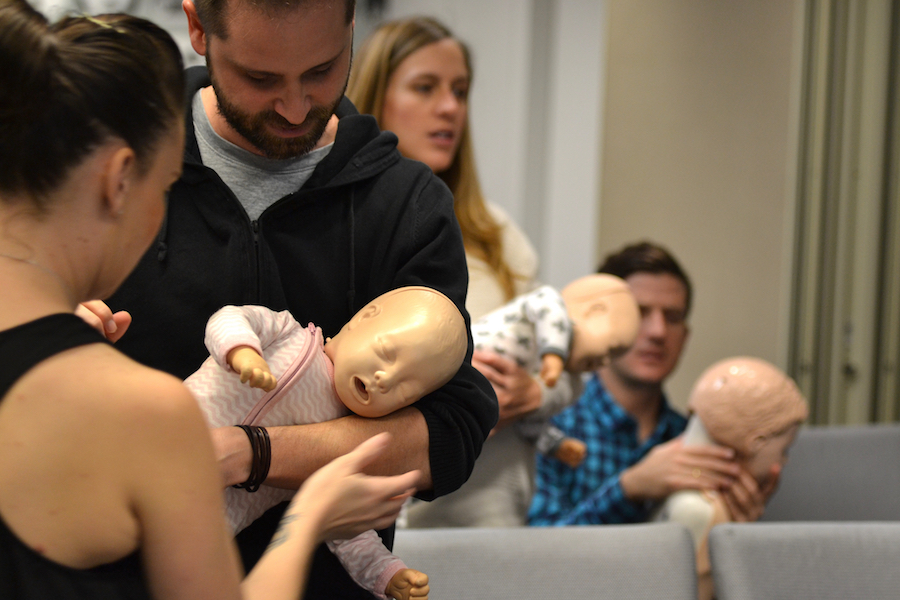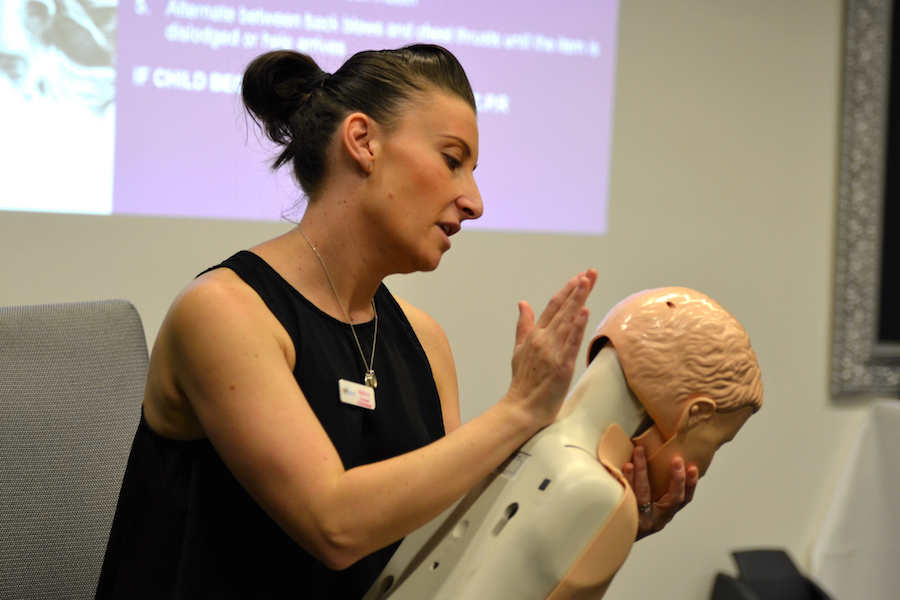Unfortunately for us as parents, our little ones can find themselves in a first aid accident at any age, anytime and any place. While seeing bub hurt or injured can be distressing, it is important for parents to prepare themselves for a first aid emergency and be ready to spring into action at any time!
We are joined by our friends over at Tiny Hearts First Aid to share their top tips for being prepared for a first aid incident with your little one:
1- Keep a first aid kit handy
Every home should have a fully stocked and easily accessed first aid kit on hand. Tiny Hearts First Aid highlights equipment such as resuscitation masks, thermometers, ice packs and bandages as some of the most important for caregivers to keep in their first aid kit.
Alternatively, you can purchase a full first kit from Tiny Hearts First Aid here (www.tinyheartsfirstaid.com/shop)
2- Keep a record of their health and medication
As much as we wish it weren’t true – as parents we can’t predict or protect our babies from a first aid accident. Trips, bumps and scrapes simply happen!
However, it is in your control and essential for caregivers to keep a record of any prior health conditions, such as allergies or asthma. This way, you can better prepare yourself (or anyone else minding bub) for what to do if the child were to undergo another episode.
Keeping medication records is also super important. When administering medicine to bub, be sure to write down the type of medication (e.g., paracetamol or ibuprofen), the time and date it was delivered, and by whom. By keeping medication records, you can ensure that there is no doubling up when handing over to another caregiver.

3- Keep important phone numbers close by:
Key emergency phone numbers (such as Poisons Hotline or Nurse on Call) should be kept in your phone and also written down at all times – you could even stick a copy on the fridge or next to the phone!
If you are a caregiver of children, you should have a two of the child’s emergency contacts updated and available. In the case of a first aid incident, it’s important to let them know what’s happened and what action you took.
4- Keep a folder of child health and safety apps on your phone:
Lucky for this generation of parents, there is a mass of handy first aid apps that all parents or caregivers should keep on their phone. Tiny Hearts First Aid recommends their custom built app for anyone wanting to expand or refresh their first aid knowledge.
Other great apps to keep on your smartphone are the Red Nose Safe Sleeping app by SIDS and Kids, and the Emergency + app developed by Australia’s emergency services.

5- Stay current with your first aid training:
So, this one’s a no-brainer. Without adequate first aid training, all of the apps and first aid kits in the world won’t help you in a first aid emergency!
Ensure you register yourself and any other key caregivers into a paediatric first aid course and refresh yourself annually to keep up to date with content.
—
Tiny Hearts is a registered training organisation (RTO #40664). For more information, please visit www.tinyheartsfirstaid.com or call 1300 054 563
You might also like to read:









